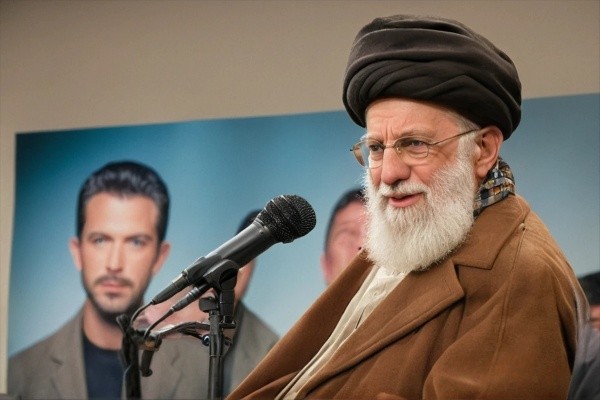Iran’s Plan to Strike Back Against the U.S.
Iran’s Military Preparations Following U.S. Attacks
Loading...

A Shift in Iran's Diplomatic Stance
In a surprising turn of events, Iran's Supreme Leader Ayatollah Ali Khamenei has opened the door for renewed negotiations with the United States regarding Iran's rapidly advancing nuclear program. During a televised address on Tuesday, Khamenei communicated to the civilian government led by reformist President Masoud Pezeshkian that there were “no barriers” to engaging with the U.S., often referred to as the “enemy.” His remarks suggest a potential shift in Iran's diplomatic strategy, despite persistent warnings about the reliability of American intentions.
Context of Khamenei's Remarks
While Khamenei's statements establish clear red lines for any future discussions, they also evoke memories of the negotiations that led to the landmark 2015 nuclear deal with world powers. That agreement resulted in significant restrictions on Iran's nuclear activities in exchange for the lifting of crippling economic sanctions. However, the current geopolitical landscape is vastly different, particularly with ongoing tensions in the Middle East exacerbated by the Israel-Hamas conflict. The extent to which President Pezeshkian can navigate these complex dynamics remains uncertain.
"We do not have to pin our hope to the enemy. For our plans, we should not wait for approval by the enemies," Khamenei emphasized in a video broadcast, asserting that engagement is possible without compromising Iran's sovereignty. However, he also cautioned Pezeshkian's Cabinet against placing any trust in the U.S., reiterating a long-standing sentiment within Iranian leadership.
The Aftermath of the Nuclear Deal's Collapse
Since the U.S. unilaterally withdrew from the 2015 agreement under former President Donald Trump, Iran has progressively abandoned all limitations placed on its nuclear program. The country now enriches uranium to levels as high as 60% purity, dangerously close to the 90% threshold needed for weapons-grade material. The International Atomic Energy Agency (IAEA) has reported disruptions to its surveillance operations in Iran, and the Islamic Republic has increasingly issued threats regarding the potential pursuit of atomic weapons.
Escalating Tensions with Israel
The backdrop of Khamenei’s comments is marked by heightened tensions between Iran and Israel, particularly following the recent outbreak of violence in Gaza. In April, Iran executed an unprecedented drone-and-missile assault on Israel amid an escalating shadow war that intensified after Israel attacked an Iranian consulate building in Syria, resulting in the deaths of two Iranian generals. Furthermore, the assassination of Hamas leader Ismail Haniyeh in Tehran has led to Iranian threats of retaliation against Israel, further complicating the regional security landscape.
Pezeshkian's Political Maneuvering
Pezeshkian ascended to the presidency following the tragic death of hard-line President Ebrahim Raisi in a helicopter crash. He campaigned on a platform that promised to re-engage with the West and explore diplomatic solutions. Khamenei's recent remarks may provide Pezeshkian with vital political cover to pursue negotiations with the U.S. His newly appointed foreign minister, Abbas Araghchi, played a crucial role in the original 2015 nuclear deal, suggesting a continuity of experienced leadership in Iran's foreign policy endeavors.
During a recent meeting between Khamenei and Pezeshkian's Cabinet, former Foreign Minister Mohammad Javad Zarif—who was instrumental in negotiating the 2015 agreement—also made an appearance. Following the meeting, Zarif indicated his intention to remain active in the administration despite previously expressing dissatisfaction regarding the Cabinet's composition.
As Iran navigates these turbulent waters, the prospect of renewed negotiations with the U.S. could mark a pivotal moment in the ongoing saga of its nuclear ambitions and regional relationships. The coming weeks may reveal whether Khamenei’s opening is a genuine offer for dialogue or a calculated maneuver within a complex geopolitical chess game.
Editor
Iran’s Military Preparations Following U.S. Attacks
Troops remain in five strategic locations, raising fears of renewed tensions and long-term occupation.
Opposition forces have taken control of the capital after a significant offensive. Here is how it unravelled.
